From November 25 to 26, 2021, national meetings on rural land were held in Abidjan. These meetings organized by Inades-Formation and its partners aimed to initiate the debate around mining and rural land.
In agricultural countries like Côte d’Ivoire, land is a source of wealth both for the State and for private individuals. It is highly coveted and subject to competition for its acquisition or control.
Côte d’Ivoire has therefore experienced and continues to experience land disputes that have often degenerated into community disputes.
To secure land rights and transactions taking place in the rural land domain, the Ivorian State has adopted law n°98-750 of December 23, 1998 relating to the rural land domain. Yet despite this law and the efforts of the government and development organizations, the issue of land tenure security is far from resolved and is even struggling to move forward.
In addition, the country has entered in recent years into intense mining activities in different parts of the country, which in addition to agricultural demands increases the pressure on land. Mining leads to environmental and societal upheavals beyond comparison with agriculture, which it tends to compete with.
It is therefore to lift the veil on this alarming reality that Inades-Formation and its partners ALERTE-Foncier, rural land agency (AFOR), the legal laboratory of the Alassane Ouattara University of Bouaké organized the national conference on land rural, from November 25 to 26, 2021.
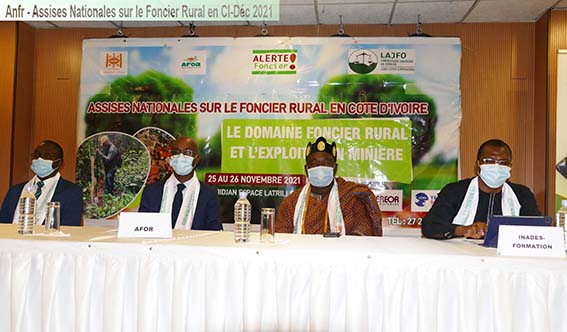
With the theme “ The rural land domain and mining ”, these meetings were intended to initiate a citizen debate on the issues and rural land dynamics linked to mining, in all their diversity.
They are part of a multidisciplinary perspective, including legal, sociological, economic, geographical, historical, anthropological, etc. and an approach that is both theoretical and empirical.
Many actors from the agricultural and mining sectors and civil society organizations took part in these meetings which were held at the Latrille Events space in Abidjan Cocody.
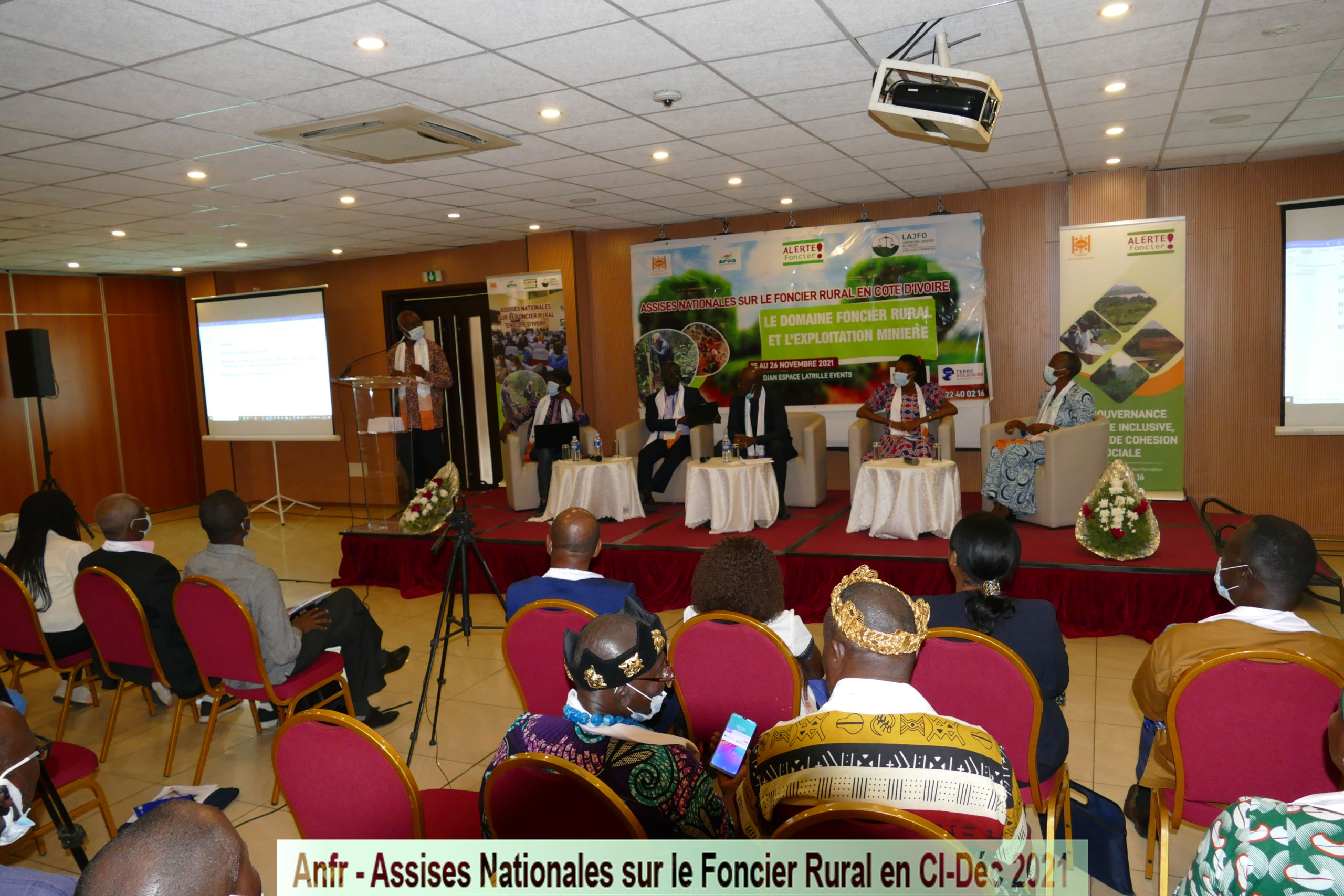
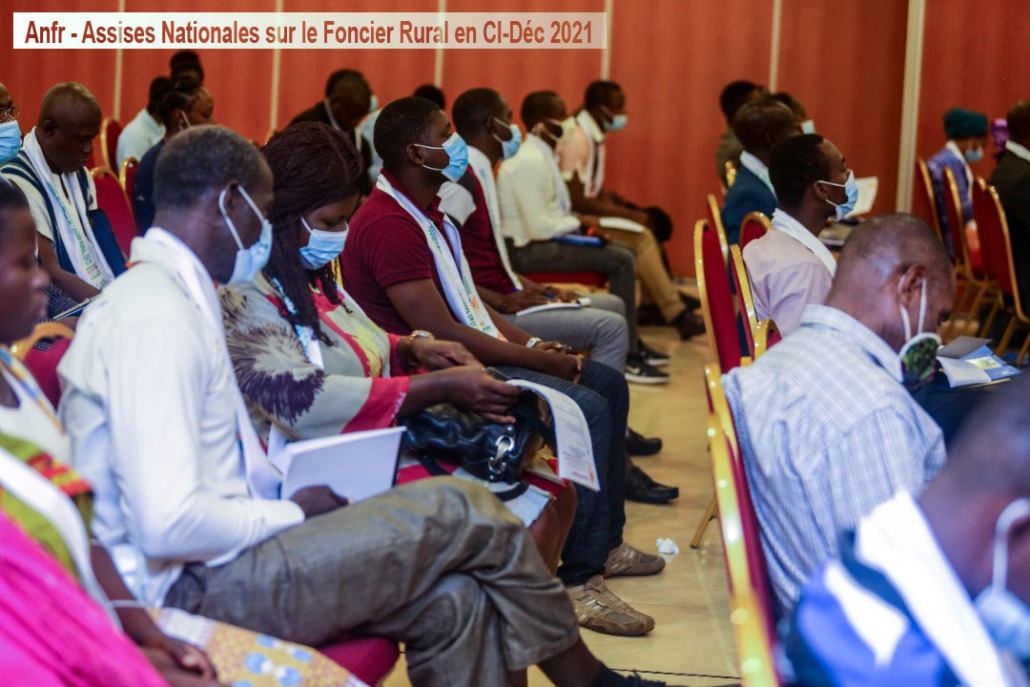
From the opening ceremony, the decor is set.
Mr. Sena ADESSOU, Secretary General of Inades-Formation and president of the strategic coordination group of the ALERTE-Foncier platform, explained the challenges of these meetings and specified that the conclusions of the meetings will be presented, in the form of recommendations, to decision-makers. for optimized governance of areas of the rural land domain hosting or conducive to mining activities.
For his part Mr. Mathias Koffi, Director of Operations of AFOR, representing the Director General of AFOR, before opening the meeting, presented the mission of his agency, in particular to accelerate all the processes of rural land tenure security undertaken by the state of Côte d’Ivoire. In his speech, he wondered about the effectiveness of the provisions taken in the mining code or in the forest code to take into account the existence of customary land rights and their application. He lamented that very few lands have been registered and have land certificates. 12,000 rural land certificates issued out of 1,000,000 expected.
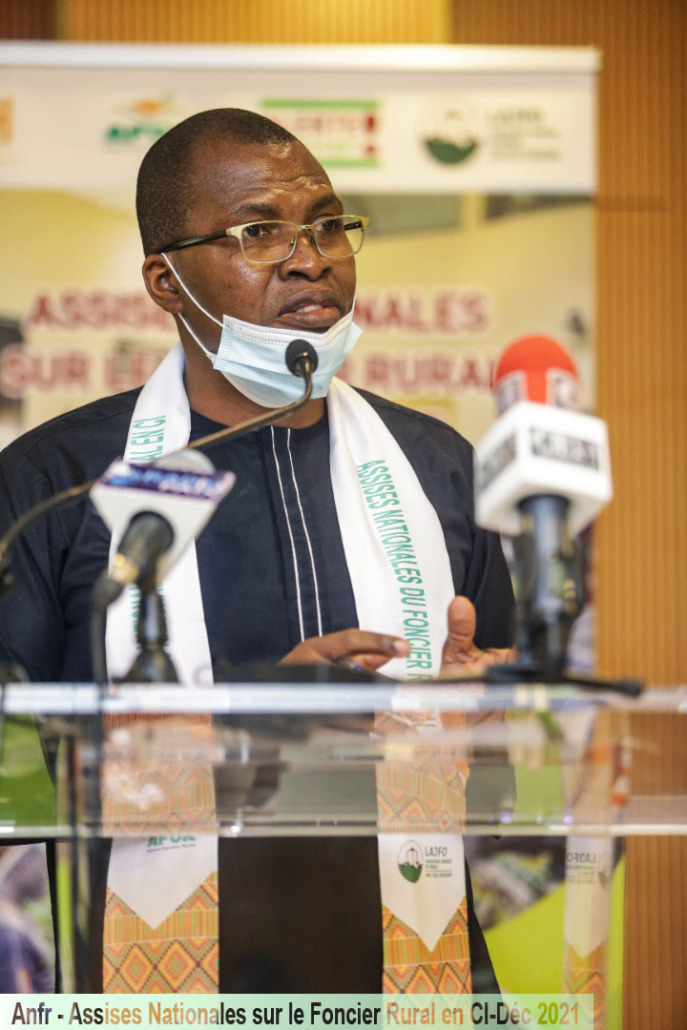
The opening ceremony was followed by an inaugural presentation led by Mr. N’GUESSAN Kouassi, Mining Engineer, representing the General Directorate of Mines and Geology, on the theme “Mining Activities and Rural Land : Indemnification/Compensation”.
The meetings were structured around the following four panels :
- Panel 1 : “Issues of securing land in the rural land domain for the development of mining activities” with four presentations ;
- Panel 2 : ” What interactions between land law, mining law and environmental law ? ” with three presentations;
- Panel 3 : “ Impacts of agriculture and mining cohabitation on social cohesion and sustainable development ” with three presentations ;
- Panel 4 : “ Some solutions to improve the formalization of customary land rights in mining areas ” with three presentations.
These panels were led by land experts, jurists, anthropologists, sociologists, communicators, and ministries and public agencies involved in land management. The various presentations and exchanges made it possible to review the conditions and consequences of the current practice of legal and illegal mining activity.
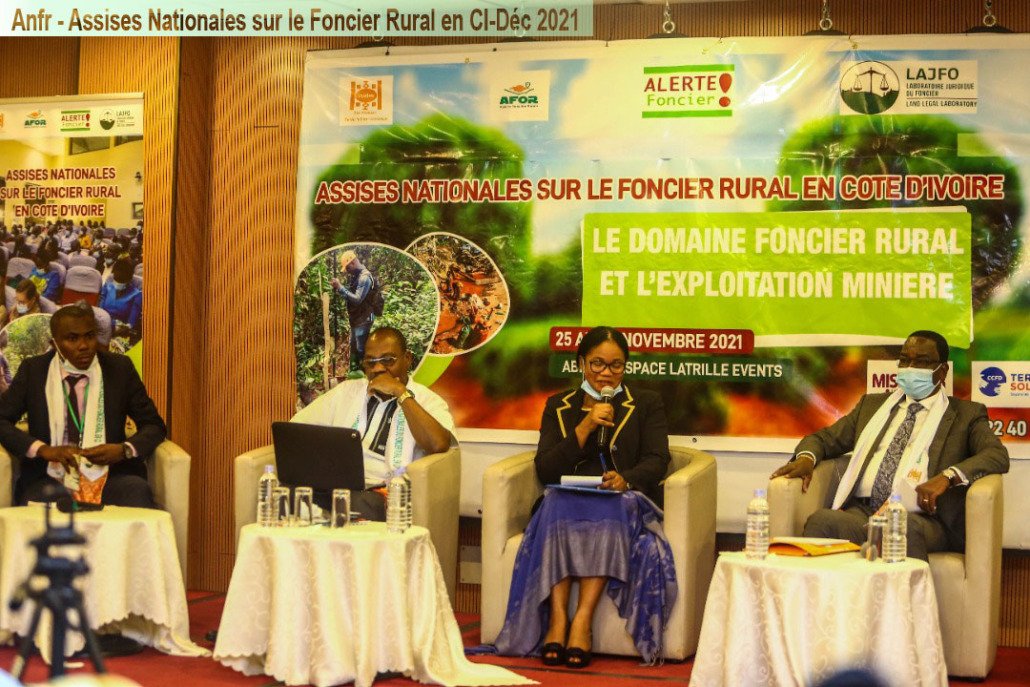
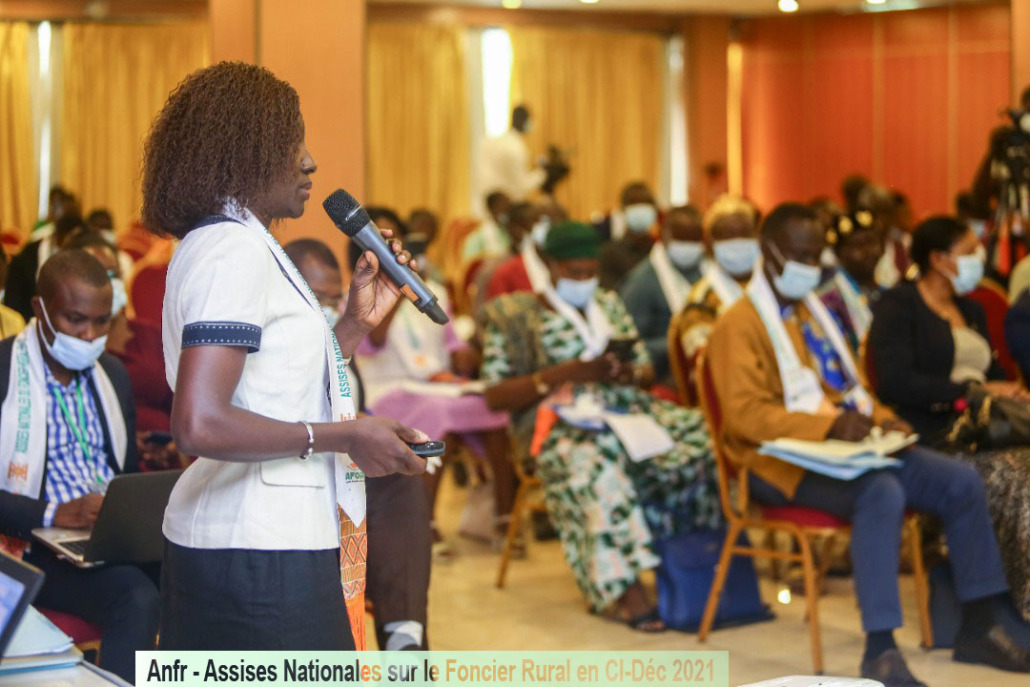
The observation is clear : mining, in addition to its financial advantages for the state and certain categories of the population, has serious consequences in the areas where it is practiced, and even more so when it is clandestine. destroys land and crops, reduces agricultural labor and therefore reduces food and non-food agricultural resources, leads to forced population displacements, disintegrates social organization, provokes conflicts, etc.
Most of the time, access to land resources takes place in an informal framework that is neither regulated nor controlled, and the provisions of the Mining Code are not respected.
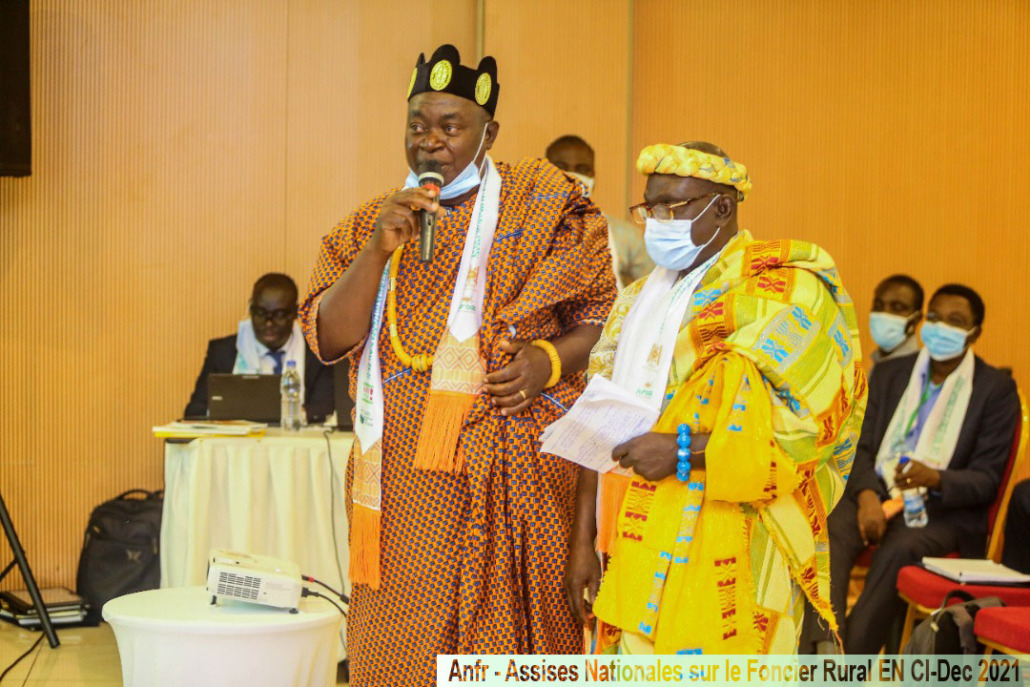
The testimonies of village chiefs and victims of clandestine gold panning did not say the opposite in their testimony, launching a cry of distress for better regulation and control of the sector.
One of the panelists, speaking of the institutional framework, wondered about the coherence of agricultural policies which grant a crucial role to agriculture in the eradication of poverty and the policy of promotion of the mining sector.
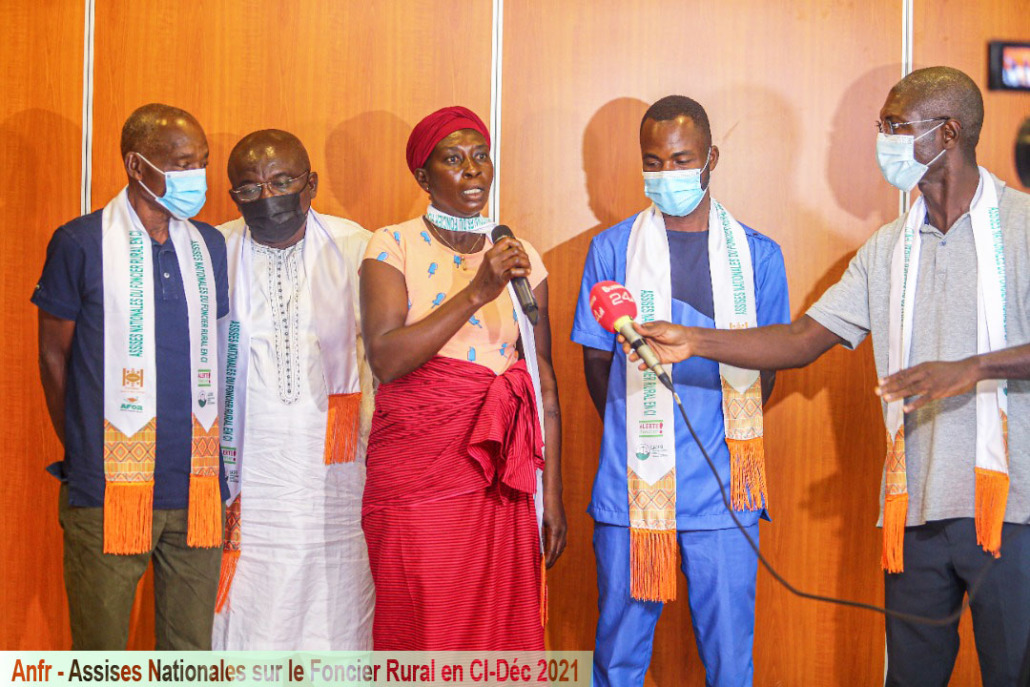
The meetings ended with a special panel which made it possible to formulate recommendations to be addressed to decision-makers.
Among these recommendations are:
- Securing rural lands in order to better assert customary land rights ;
- Facilitate the obtaining of the certificate and the land title through their free in particular;
- Develop a frank collaboration between the Ministry of Mines and that of Water and Forests;
- Reduce the impacts of mining activity on forests by implementing and monitoring the results of environmental assessments ;
- Rehabilitate forests destroyed by mining ;
- Take into account all the concerns of local populations in relation to mining ;
- Organize a broad public awareness campaign ;
- Encourage the constitution of voluntary nature reserves by the populations
- Improve the management of local mining development committees (CDLM) and carry out an audit ;
- Set up land use plans both at national and local level, identifying land with high agricultural potential ;
- Channel artisanal gold miners to facilitate soil rehabilitation ;
- Rural populations must be preserved against the anarchic occupations of mining ;
- Involve village chiefs in the policy to fight against illegal gold mining ;
- The effective application of the mining code.
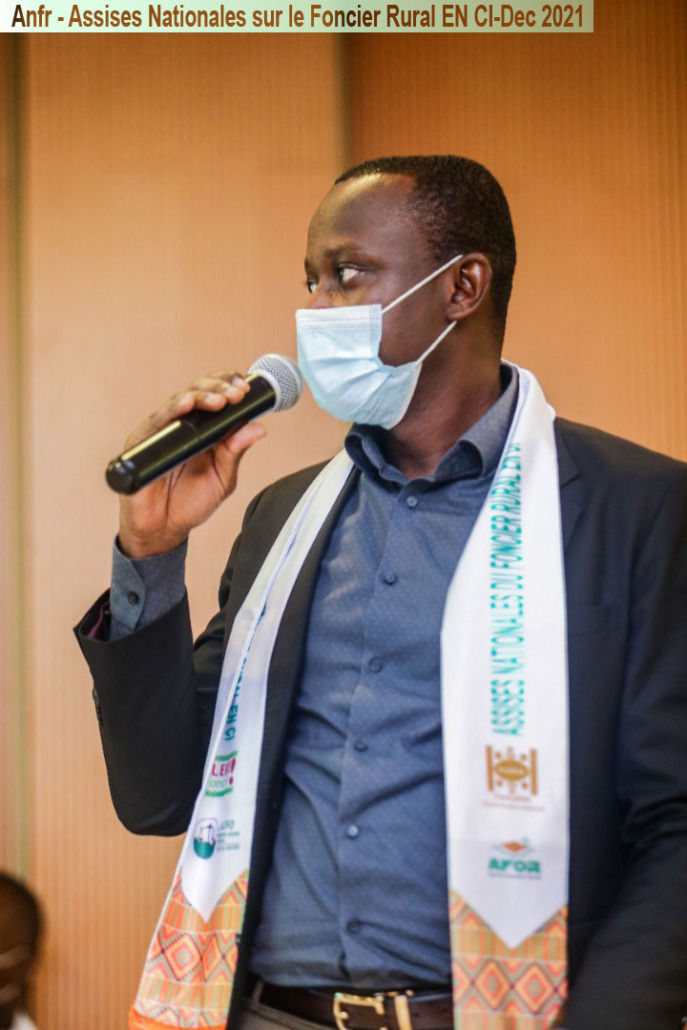
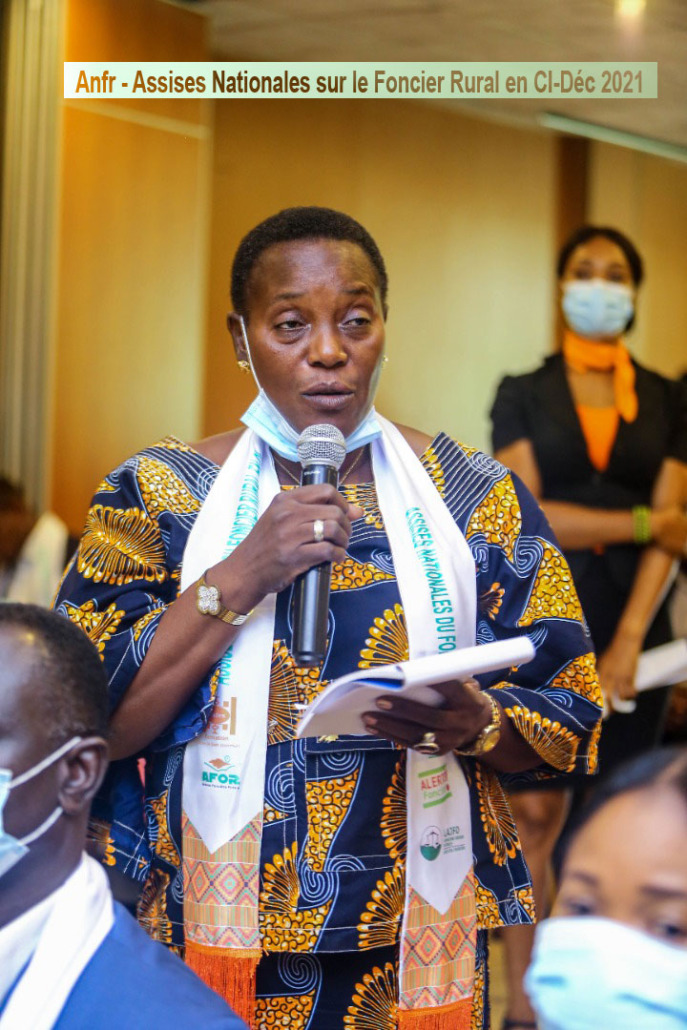
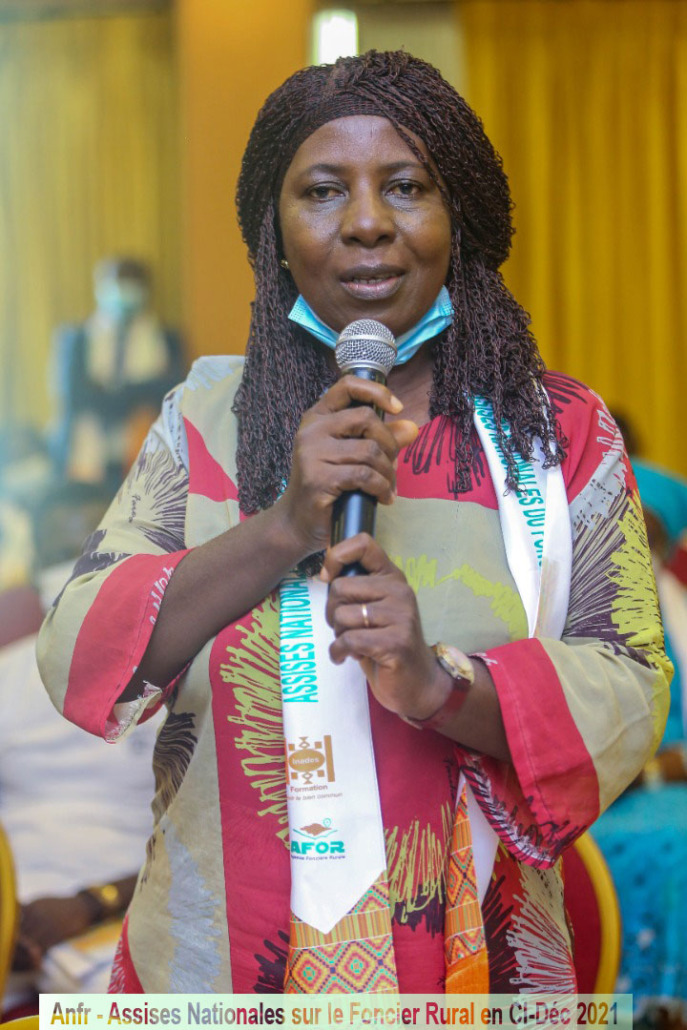
The participants said they were satisfied with the information received and the exchanges. However, one of the questions raised at the meeting remains unanswered : is clandestine gold panning a sub-sector to be eliminated or organised ?
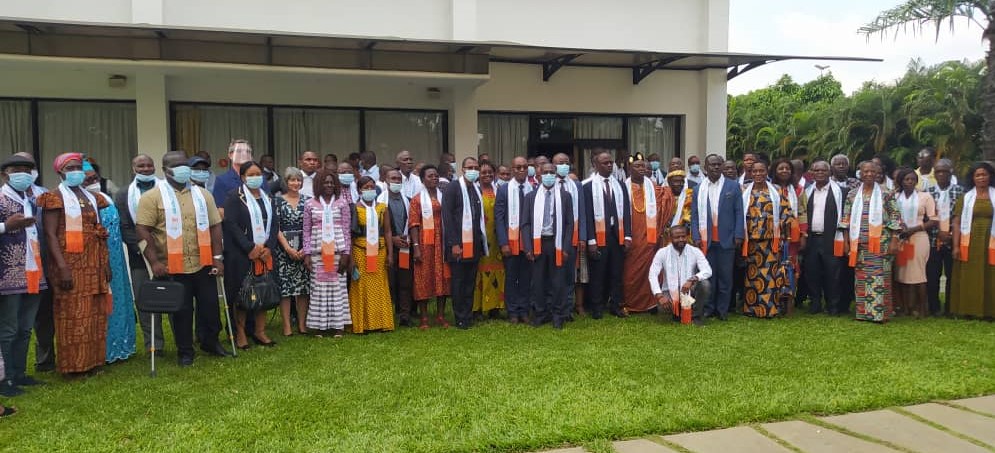
Other presses:
https://www.fratmat.info/article/216557/conomie/foncier-des-assises-nationales-pour-proposer-des-solutions-pour-une-cohesion-sociale-dans-les-zones-rurales
https://www.aip.ci/cote-divoire-aip-les-assises-nationales-sur-le-foncier-rural-2021-ouvertes-a-abidjan









